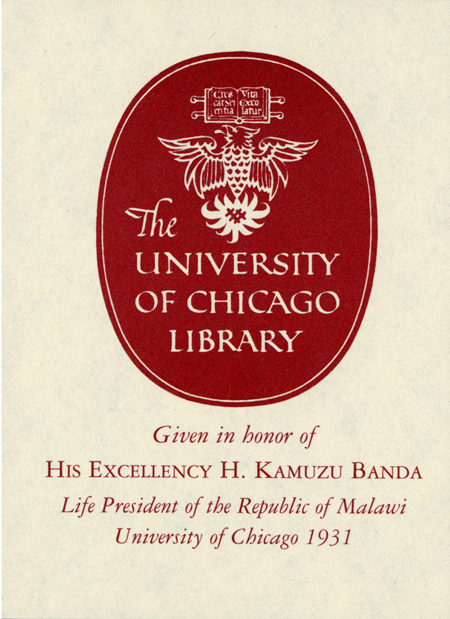Review by Choice Review
This elegantly written book helps make sense of the senseless: why the world, exemplified through the UN, stood by silently as hundreds of thousands of Rwandans were brutally murdered in the spring of 1994. Barnett, political officer on the US Mission to the UN and an insider aware of the policy pressures, brings a unique perspective. An earlier failed mission in Somalia cast a pall over the American position. But the US was not the only culprit. France remained a staunch ally of the Hutu-dominated Rwanda government, providing arms to the murderous Interhambwe. More broadly, however, Barnett views the tragedy of Rwanda as an ethical history. Existing categories of thought proved inadequate to comprehend the scale and intent of violence. Meanwhile, the post-Cold War escalation of ethnic conflicts and the burgeoning of UN peacekeeping efforts overwhelmed the UN's bureaucratic mores and the capacities of donor states. Eyewitness to a Genocide is unique in emphasizing the often-destructive culture of the UN, designed for an era of slow-moving diplomacy, not for rapidly shifting events in which major players were sharply opposed to swift action. But towering above all is Barnett's wedding of concise analysis, insider knowledge, ethical principles, moral outrage, the bureaucratic ethos in New York, misreadings of the situation on the ground, and a balanced attempt to assess blame. Highly recommended. C. E. Welch SUNY at Buffalo
Copyright American Library Association, used with permission.
Review by Booklist Review
Barnett's analysis of the Rwandan crisis provides insight into the operations of the United Nations and its bureaucracy. By focusing on the internal discourse out of which the UN's far-reaching decisions would be made by both action and inaction, Barnett explores a cultural landscape few outsiders have viewed. The imperative to stop the genocide in retrospect appears a compelling indictment of the UN's failure to act. Barnett's involvement at the UN at the Somalia desk provides an initial critical view of the UN. However, he looks at alternative models for determining the direction and priorities of the UN. During this period, the UN suffered substantial defeat from the warlords in Somalia, leaving many to wonder, why bother. The UN's decisions were influenced by its responsibility to protect its troops, geopolitical constraints, and operational ethics. Yet, despite the insights, which explain alternative logics, this important, crucial analytical work tends to expose how the UN's decision-making bureaucracy, run by good people, can contribute to the evil and darkness of Rwanda. --Vernon Ford
From Booklist, Copyright (c) American Library Association. Used with permission.
Review by Publisher's Weekly Review
As a staffer on the U.S. Mission to the U.N. in 1994, Barnett observed the U.N.'s reaction to the Rwandan genocide, in which an estimated 800,000 Tutsis were murdered by Hutus over a period of about three months; at the height of the killing, 5.5 deaths occurred every minute. Though officials at the U.N. Secretariat knew the facts, the U.N. took no meaningful action other than to declare that they remained "actively seized of the matter." (Barnett was himself initially opposed to intervention.) In puzzling through the U.N.'s decisions, the author offers not a scathing indictment of its timidity in the face of mass brutality so much as a searching and nuanced moral analysis. In his attempts to explain how "those working at the U.N. approached Rwanda not as individuals but rather as members of bureaucracies," Barnett carefully examines the U.N.'s institutional values and the ways in which decent international civil servants adhered to norms that repeatedly drew their attention away from the Rwandan crisis. All too aware of their powerlessness when member states refused to commit forces and desperate to avoid repetition of the debacle in Somalia (think Black Hawk Down), U.N. diplomats ultimately concluded that nonintervention was the ethical course. Barnett by no means exonerates the U.N.; in fact he insists that member states notably France and the U.S. knew of the genocide, had the power to act, yet failed to do so until it was too late. This insightful, balanced book reveals an unsettling paradox: in making choices it deemed moral, the U.N. tolerated the ultimate immorality of genocide. (Apr.) (c) Copyright PWxyz, LLC. All rights reserved
(c) Copyright PWxyz, LLC. All rights reserved
Review by Library Journal Review
Students of government are familiar with Graham Allison's Essence of Decision, which used the Cuban Missile Crisis to show how bureaucratic politics influence policy making. Barnett, who served in the U.S. Mission to the United Nations, has produced a worthy companion to Allison's work. A witness to UN inaction during the Rwanda genocide of the 1990s, he suggests that institutions can disfigure not only rational decision making, pace Allison, but also the character of the officials who work in them with disastrous results. The bureaucratic culture within the UN, maintains Barnett, produced a common understanding of the organization's role in world politics. This vision was embodied in abstract concepts such as neutrality, impartiality, and consent, as well as rules governing when peacekeeping was the right tool to defuse ethnic conflict. Applied to the Rwanda genocide, these benchmarks dictated inaction. As a result, many UN officials sincerely believed that standing idly by was not only correct but also the morally virtuous stance. A chilling work despite its pervasive academic jargon; recommended for all international affairs collections. James R. Holmes, Ph.D. candidate, Fletcher Sch. of Law & Diplomacy, Tufts Univ., Medford, MA (c) Copyright 2010. Library Journals LLC, a wholly owned subsidiary of Media Source, Inc. No redistribution permitted.
(c) Copyright Library Journals LLC, a wholly owned subsidiary of Media Source, Inc. No redistribution permitted.
Review by Choice Review
Review by Booklist Review
Review by Publisher's Weekly Review
Review by Library Journal Review

